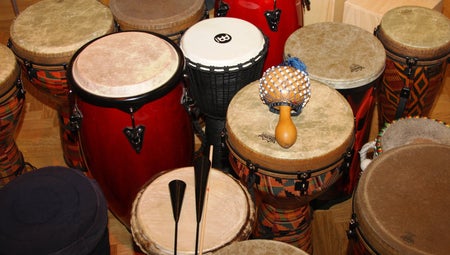Los Caminantes Tickets

No Concerts Near
All Concerts
Indianapolis, IN
There are currently no reviews. Be the first to .
Bio
Los Caminantes In Concert
Los Caminantes are back again. What began in the 1970s as a band of brothers is now a different sort of family affair, with singer, songwriter, and paterfamilias Agustin Ramírez leading a rejuvenated Los Caminantes (the Walkers) that now includes two of his sons.
Agustin and his three male siblings – Brígido (bass), Horacio (guitar), and Martin (keyboard) – hailed from the central Mexican state of Guanajuato and later moved to San Bernardino, California. Known originally as Los Caminantes Aztecas, the brothers dressed in snazzy tuxedos and performed a variety of regional Mexican styles on electric instruments.
Over the course of some 45 albums, Los Caminantes developed a sound that could shift easily between sinuous cumbia, folky rancheras, and romantic pop displaying doo-wop roots, along with dips into banda and mariachi. Their 1983 debut album, Supe Perder (I Knew How to Lose) contained the hit singles "Supe Perder," "Para Que Quieres Volver" (What Do You Want to Do), and "Dime Si Me Quieres" (Tell Me If You Love Me).
Changes ensued as the group grew more successful. Mario Sotelo replaced Brígido in 1986 prior to the release of the band's biggest-selling track, "Amor Sin Palabras" (Love Without Words) from the hit album De Guanajuato...Para America! (Brígido still leads his own group, Los Caminantes de Brígido Ramírez.) After Martin, the youngest Ramírez brother, died in a bus accident, Los Caminantes paid tribute to him in 1989 with Gracias Martin.
Throughout the '80s and '90s, Los Caminantes appeared on Mexico's most popular television shows and to ever-larger audiences on the road. They regularly filled stadiums, and a free Mexico City performance in 1988 drew an audience of 175,000 to the city's Zócalo.
Los Caminantes continue to tour, record, and change. Horacio Ramírez left to start his own group in 2017, and Agustín has had to deal with alleged trademark infringers. Yet he perseveres, bringing Los Caminantes' charming and sentimental sound to both longtime fans and listeners newly appreciative of one of Mexican regional music's more venerable musical institutions.